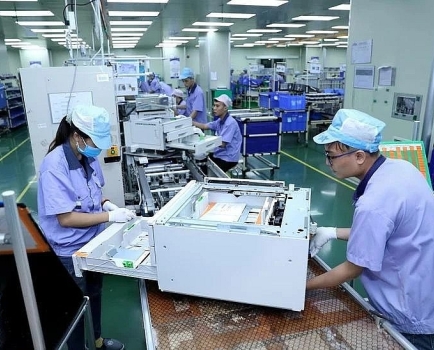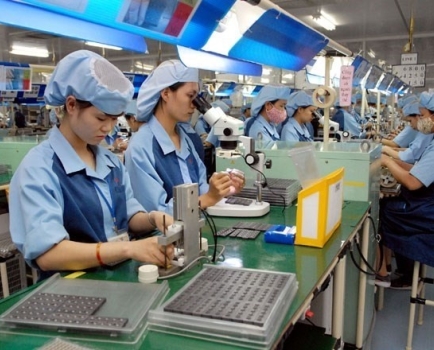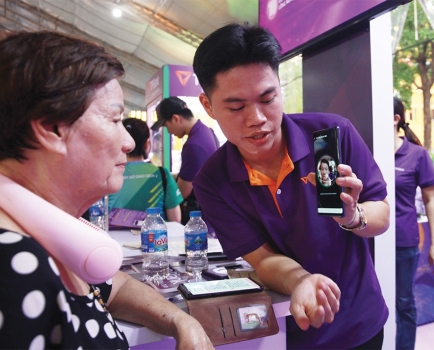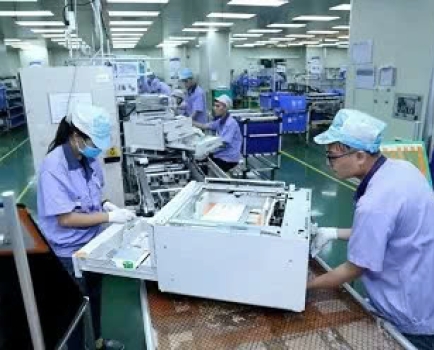Vietnam has miles to go in dealing with sexual abuse of children
Wed, 03 Jul 2019 14:40:00 | Print | Email Share:
Acknowledgment of sexual abuse of children as a serious problem has been belated; dealing with its aftermath is virtually uncharted territory.

Pham Minh Triet
"I want to kill him so bad, doctor.
"I’ve wanted to do that for so many months now, but I couldn’t.
"Every time I remember what happened to my daughter, I just want to find him and kill him," said a young man sitting across from me, his voice trembling. Sobbing next to him was his wife, as their four-year-old daughter sat beside them, motionless.
The young couple, who ran a family business in Saigon, had not yet recovered after their daughter was sexually abused. The father showed me pictures of his child’s wounds, signs that the little girl had been violated in both body and mind.
His anger was raw, anger with the fiend who abused his daughter, anger with the legal system that failed to deliver justice to his family, and anger with himself. He and his wife had come to me in the Mental Health Department, not just to heal their daughter, but also themselves.
For the next 30 minutes, the man went through a rollercoaster of emotions: fear, anger, resentment, agony. He felt hurt and powerless, afraid that his daughter could be sexually abused again the moment he takes his eyes off her. The couple abandoned their business ventures and focused full-time on monitoring their daughter. They put their faith in the law, believing it would protect their daughter and punish the one who wronged her. But three months had passed since their last inquiry and the case hadn’t moved forward an inch.
I tried to listen. I didn’t ask as many questions as I often do in a standard session. I, too, felt their pain and anguish and fury and dread, but as a psychiatrist, I cannot let my personal sentiments get the better of me. Only by keeping our heads cool can we figure out what to do next.
Throughout my career, I’ve seen so many more cases of sexually abused children. Some of them took very dark turns.
Once, there was a teenage girl who came with her mom to my clinic. The girl had been abused by a close relative for years before she decided to tell her mother. But the mother didn’t believe her; not until she witnessed with her own eyes her daughter being abused. And even then, the girl’s family decided to "settle the matter" in order to save face, and all that happened was that the abuser got told to "not do that again."
But the abuses continued. The mother even blamed it on the daughter, saying she was a "burden."
That hurt me the most, so you can imagine what the girl went and is going through.
There was another girl who was abused by her tutor. Her mother, believing the tutor was an upright man, often entrusted her daughter at his home when she had to take care of personal business. When it got out that the tutor was abusing the girl, both mother and daughter had to go through so much pain and suffering that had left them mentally and emotionally scarred. The daughter is 10 years old now, but her mind seems to have stuck at five. The mother is currently on meds to treat her crippling depression.
Those are just some of many similar cases I can think of about the time I used to work for the Mental Health Department of the Children's Hospital No.1 in HCMC. Always and without fail, cases of sexual abuse on children psychologically scar not only their victims, but also their families and loved ones.
The children, even for those too young to understand what was going on, are left with a slew of mental and emotional disorders, including paranoia, depression, low self-esteem, attachment and psychosomatic disorders. But the most long-lasting of them is post-traumatic stress disorder, or PTSD, which can trigger memories of the sexual abuse spontaneously and unpredictably, making its victims go through the dreaded experience over and over again.
Some of the victims, especially juveniles, take to alcohol, drugs or join street gangs to distract themselves from their traumatizing past. Their families, meanwhile, have to deal with the pain, the shame and the internal conflicts on whether to speak out or stay silent about what happened. They often believe that such an event is a permanent blot on their life, a wound that just won’t heal. Some try denial, but that is an impossible, fruitless task. Most often people unable to deal with the pressures descend into depression and anxiety disorders.
20 percent of girls and 8 percent of boys globally are victims of sexual abuse, according to a study of 22 countries. 30 percent of all cases are perpetrated by a close relative, and a mind-blowing 60 percent by family friends, neighbors or babysitters. Only 10 percent are perpetrated from complete strangers.
In Vietnam, a study which surveyed 1,800 boys and girls between 12 and 17 found only 2.6 percent having been sexually abused: a figure much lower than those of similar studies in other countries. This most likely means that many young victims did not dare to speak of the trauma they had gone through.
Things are changing. Society is now much more aware of sexual abuse cases of children, as we can see from many recent incidents that have sparked widespread outrage. That certainly is a good sign.
But, the fact remains that our children have never been sufficiently taught to protect themselves from or get out of situations that could escalate into sexual abuse. As long as this does not happen, there will be more generations of children permanently scarred by their past, unable to move on.
Parents are still not teaching their children enough about how to protect themselves. I know a friend, also a psychologist like me, who is often invited to host seminars on sexual abuse prevention. But a seminar was canceled because the organizer thought "the trend was over."
Another friend said no parent came to such seminars because they either thought their children would never be sexually abused, or simply find that such a topic is still "too sensitive."
Children learn through a series of steps. They must first know what they need to learn, express a desire to learn it, then learn and retain the knowledge they have in the form of habits or reflexes. In order to do that, guidance from parents, teachers and other caregivers is absolutely vital.
We simply need to do a lot more for our children. Not just by spreading the word or sharing posts on social media, but with real and concrete actions. Children need to be taught and trained on how to avoid situations that could lead to sexual abuse, and how to react when they encounter such situations. Just because you only see sexual abuse cases on the news and not in real life, doesn’t mean your children are immune from such calamities. And as many studies and research show, the perpetrators are most likely be the people closest to us and our children.
I am not a magician. I can neither erase what happened to my patients and their families, nor give them the things they want most. But I can console them, calm them down enough to help them see the events from a more logical perspective, so they would not make decisions they would regret. Time will heal, but not all of it. There will always be a part of you that remembers, that becomes a part of your personal narrative and makes you who you are at any given point in time.
But there is a choice.
And it is a choice that we, as a society and community, need to help people make. The victims and their loved ones, who are also victims, can ignore what happened and let it fester inside, and risk having it come out in uglier ways. Or we can facilitate the process of diving deep down, swimming to the wreckage at the bottom and hopefully bring something back to the surface to help them and others. The wounds may never leave, but we can help ensure that they are not permanent stains on life. We can create conditions to let victims to deal with their trauma without shame and wear them as battle scars, as proud survivors.
Sadly, Vietnam is miles away from doing this. So we have no time to lose in getting there.
*Pham Minh Triet is a researcher with the Psychology Department of the Australian National University. He was the head of the Mental Health Department of the Children's Hospital No.1 in HCMC from 2011 to 2018. The opinions expressed are his own.
By: Pham Minh Triet/VnExpress
---------------------------------------------
Same category News :













